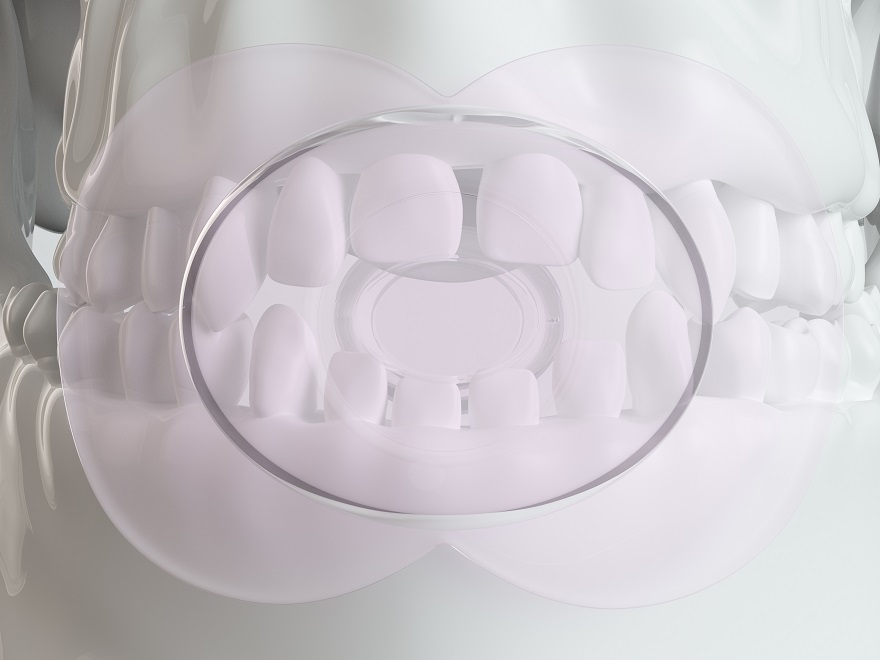Thumb-sucking and Dental Health: 5 Things
-

When it comes to the early years of parenting, there’s rarely a dull moment. During the first few years of life when children are at their most vulnerable, parents are focused on safeguarding them from any/all threats whilst simultaneously allowing them the space and freedom to grow and learn. It’s a delicate balance that often leaves parents stressing over seemingly trivial things; like thumb-sucking.
Thumb-sucking and pacifier dependency are real concerns for parents as children grow older and begin socializing. In general, thumb-sucking is not a troubling behavioral trait in young children. On the contrary, it can actually serve as a useful distraction for young children seeking comfort or entertainment. But at what point should a child put the pacifier down and stop sucking their thumb? How can parents break the stubborn habit without disrupting development? And what are the dental effects of thumb-sucking that parents should be wary of?
Here are five things to know about thumb-sucking…
-
1. It’s Perfectly Normal

The most important thing for parents to know about thumb-sucking is that it’s perfectly normal. In fact, most infants self-pacify with a thumb or finger. The American Dental Association (ADA) notes that thumb-sucking is a “natural reflex” for children to help them feel secure and happy in the world around them.
-
2. When Should it Stop?

On the one hand, experts agree that thumb-sucking and pacifier dependency is perfectly normal for young children, but on the other hand, it’s not a habit that should be allowed to go on indefinitely.
The good news is that most children naturally stop sucking their thumb or fingers, and lose interest in pacifiers between the ages of two and four. The bad news is that not all children do. The ADA recommends that thumb-sucking children over the age of four should be discouraged from the habit. During this important developmental time, thumb-sucking can have a negative impact on jaw and tooth health. Prolonged thumb-sucking beyond the age of four can result in tooth/jaw misalignment and have a permanent effect on dentition.
-
3. How Does it Impact the Teeth?

Thumb-sucking can become problematic once the permanent teeth begin to erupt; typically around the age of six. The main issue relates to proper alignment of the teeth. The act of sucking on the thumb can actually pull the front teeth outwards, opening up the child’s bite and interfering with occlusal health. These changes can prevent the upper and lower teeth from coming together correctly when biting, which can have a variety of effects, including:
- Excessive wearing of the teeth
- Chipping/cracking of the teeth
- Tooth loss
- Tooth sensitivity
- Head/neck muscle pain
- Jaw pain
- Joint noises
The extent of the damage is tied not only to the sucking motion, but also to the amount of pressure applied. The harder a child sucks, the more the potential damage to the teeth.
-
4. Discouraging Thumb-sucking

If your child is over the age for four and still clinging to thumb-sucking or pacifier dependency, it’s time to start discouraging the habit. This is obviously easier said than done. The security a child attaches to the act can be difficult to let go of.
One of the simplest things a parent can do to help discourage thumb sucking is by praising the child for breaking the habit. This sort of positive reinforcement can make a world of difference, especially for a child who sucks their thumb out of feelings of insecurity or discomfort. In such cases, this praise should be supplemented by a focus on addressing the underlying issues causing these feelings. Similarly, a reward system can be instituted to provide children with another positive association for not sucking their thumb.
For older children, parents should consider including them in the conversation about how to address the issue. This conversation can help shift the child’s perspective and reinforce the idea that he/she is too mature for such childish acts.
If all else fails, there are some other options parents can consider, including putting a sock or bandage over the child’s hand at night as a reminder that he/she shouldn’t be sucking on their thumb, or bringing a dentist into the fold.
-
5. Your Dentist can Help

For parents struggling to help their children break the habit, it’s always good to lean on a pediatric dentist for help. Pediatric dentists have a great deal of experience with the common issues relating to children’s teeth. A dentist can help educate children about the negative impact of thumb-sucking.
Pediatric dentists can also assist with extreme cases whereby the child simply refuses to curb the habit. This may include prescribing a bitter medication that coats the thumb, making sucking distasteful. Similarly, a dental appliance like a palatal bar or “crib” can be inserted into your child’s mouth to prevent thumb-sucking. However such measures are only considered in extreme cases.
Speak with a pediatric dentist for more information.









